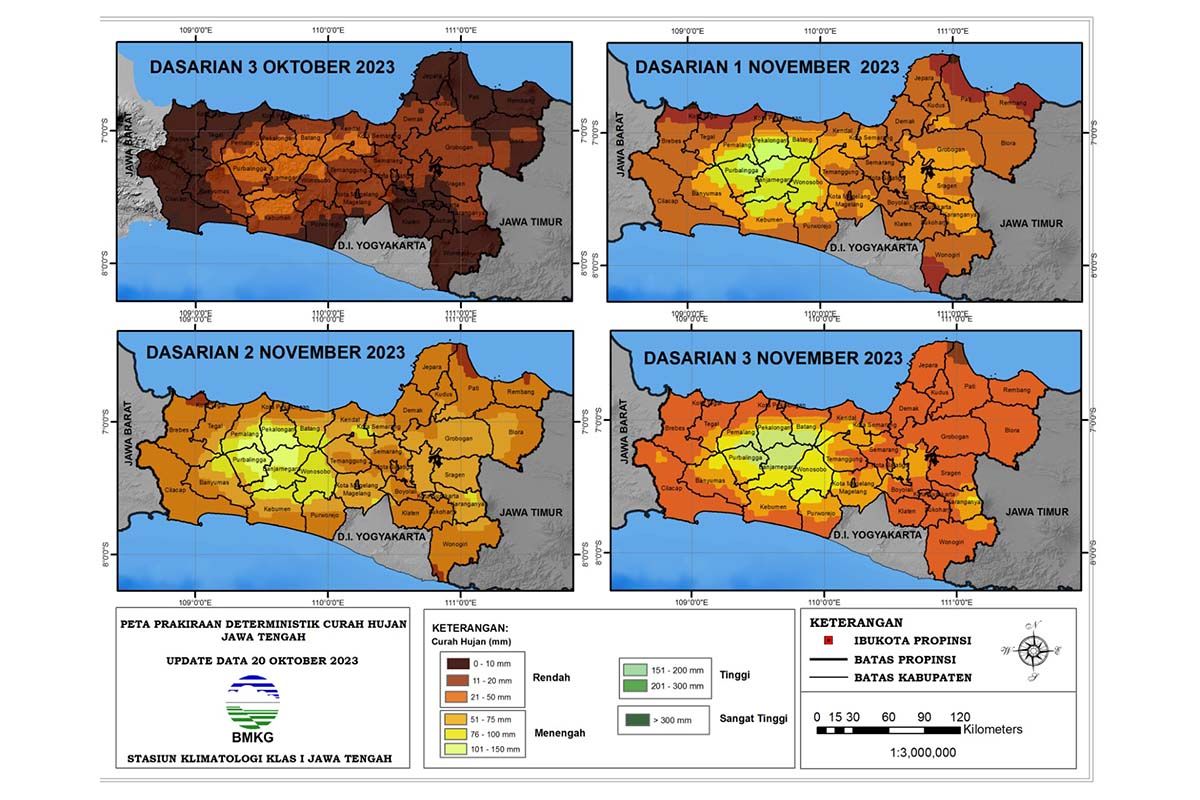Bali Belly: Diagnosis, Treatment, And How To Avoid It

Table of Contents
Understanding Bali Belly: What is it and What Causes It?
Bali Belly, also known as traveler's diarrhea, is a common ailment affecting tourists visiting Bali and other tropical destinations. Its prevalence is high due to factors discussed below, making it a significant concern for those planning a trip. Understanding the causes is the first step in prevention and treatment.
Common Causes of Bali Belly:
Several factors contribute to the development of Bali Belly. The most common culprits include:
-
Contaminated food and water: This is the primary cause. Undercooked seafood, contaminated ice cubes made from tap water, and improperly handled street food are frequent offenders. Even seemingly safe restaurants can harbor bacteria if hygiene standards aren't strictly followed.
-
Poor hygiene practices: Many food stalls and smaller restaurants in Bali may not adhere to the same stringent hygiene standards as those found in Western countries. This lack of proper food handling and sanitation significantly increases the risk of bacterial contamination.
-
Bacterial, viral, and parasitic infections: Several pathogens can cause traveler's diarrhea, including E. coli, Salmonella, Shigella, and parasites like Giardia. These microorganisms are easily transmitted through contaminated food and water.
-
Exposure to new strains of bacteria: Your gut microbiome is accustomed to certain bacteria. Exposure to new strains in a different environment can overwhelm your system, leading to digestive upset.
-
Symptoms of Bali Belly: The symptoms of Bali Belly vary in severity but commonly include diarrhea, stomach cramps, nausea, vomiting, fever, and dehydration. Recognizing these symptoms early is crucial for prompt treatment.
-
Severity varies greatly: The severity of Bali Belly depends on several factors, including the type of pathogen, the amount of exposure, and the individual's immune system. Some people experience mild discomfort, while others suffer severe dehydration and require medical attention.
-
Importance of early recognition: Recognizing the symptoms of Bali Belly early allows for timely intervention, minimizing the severity and duration of the illness.
Diagnosing Bali Belly: When to Seek Medical Attention
While mild cases of Bali Belly can often be managed at home, it's crucial to understand the limitations of self-treatment. Some symptoms indicate the need for immediate medical attention. Never hesitate to seek professional help if you're unsure.
Symptoms Requiring Medical Attention:
Several symptoms signify the need for immediate medical care:
-
Severe dehydration: Signs include excessive thirst, dry mouth, dizziness, decreased urination, and sunken eyes. Dehydration can be life-threatening if left untreated.
-
Bloody diarrhea: Blood in the stool indicates a more serious infection requiring medical evaluation and treatment.
-
High fever (above 38.5°C/101.3°F): A high fever suggests a severe infection that needs professional medical attention.
-
Persistent vomiting preventing fluid intake: Inability to retain fluids due to persistent vomiting leads to rapid dehydration and necessitates medical intervention.
-
Severe abdominal pain: Intense abdominal pain warrants immediate medical attention, as it could indicate a more severe condition.
-
Importance of rehydration: Rehydration is crucial in managing Bali Belly. Oral rehydration solutions (ORS) are effective for mild cases.
-
Over-the-counter medications: For mild cases, over-the-counter medications like loperamide (for diarrhea) might provide temporary relief. However, always consult a doctor before taking any medication.
-
Seeking medical advice: If symptoms worsen or you're concerned, seek medical advice from a doctor or clinic in Bali.
Treating Bali Belly: Relief and Recovery
Treatment for Bali Belly depends on the severity of the symptoms. Mild cases can often be managed with home remedies, while severe cases require medical intervention.
Home Remedies for Mild Cases:
For mild cases of Bali Belly, focus on these strategies:
-
Oral rehydration solutions (ORS): ORS are essential to replace lost fluids and electrolytes. You can purchase these at pharmacies.
-
Bland diet (BRAT diet): The BRAT diet—bananas, rice, applesauce, and toast—is easy to digest and can help soothe the digestive system.
-
Rest: Getting plenty of rest allows your body to focus on recovery.
Medical Treatment for Severe Cases:
Severe cases of Bali Belly may necessitate medical treatment, which could include:
-
Antibiotics: In some severe bacterial infections, a doctor may prescribe antibiotics. Never self-medicate with antibiotics.
-
Anti-diarrheal medications: A doctor might prescribe anti-diarrheal medication, but only after proper evaluation.
-
Intravenous fluids: Severe dehydration requires intravenous (IV) fluids to restore fluid balance.
-
Importance of following doctor’s instructions: Adhering to your doctor's instructions is crucial for a speedy and complete recovery.
-
Avoiding alcohol and caffeine: Alcohol and caffeine can irritate the digestive system and should be avoided during recovery.
-
Gradual return to normal diet: Gradually reintroduce solid foods into your diet as your symptoms improve.
Preventing Bali Belly: Proactive Steps for a Healthy Trip
The best way to deal with Bali Belly is to prevent it altogether. By taking proactive steps, you significantly reduce your risk.
Food and Water Safety:
-
Drink bottled water only: Avoid tap water and ice made from tap water.
-
Avoid ice in drinks: Ice cubes are often made from tap water and can harbor bacteria.
-
Choose carefully cooked food: Opt for well-cooked food from reputable establishments with good hygiene practices.
-
Peel fruits and vegetables: Peel fruits and vegetables yourself to remove any potential contaminants.
-
Avoid raw or undercooked seafood: Raw or undercooked seafood is a common cause of food poisoning.
-
Be cautious of street food: While tempting, street food poses a higher risk of contamination.
Hygiene Practices:
-
Wash hands frequently: Wash your hands frequently with soap and water, especially before eating and after using the toilet.
-
Use hand sanitizer: When soap and water are unavailable, use a hand sanitizer containing at least 60% alcohol.
-
Avoid touching your face: Avoid touching your eyes, nose, and mouth to prevent the spread of germs.
-
Consider travel insurance: Travel insurance can cover medical expenses if you do become ill.
-
Pack essential medications: Consult your doctor about packing any necessary medications, but never self-medicate without professional guidance.
-
Research recommended vaccinations: Check with your doctor about recommended vaccinations for your trip to Bali.
Conclusion
Bali Belly, while a common concern, doesn't have to derail your dream Balinese vacation. By understanding its causes, symptoms, and treatment options, and by taking proactive steps to prevent it, you can significantly reduce your risk. Remember to prioritize food and water safety, maintain good hygiene practices, and seek medical attention if symptoms worsen. Enjoy your trip to Bali with the knowledge and preparedness to avoid Bali Belly, and remember that a little caution goes a long way in ensuring a healthy and unforgettable adventure! Don't let the fear of traveler's diarrhea stop you from experiencing the beauty of Bali. Plan ahead, stay safe, and enjoy your trip!

Featured Posts
-
 Tribal Loans Navigating Bad Credit With Direct Lenders
May 28, 2025
Tribal Loans Navigating Bad Credit With Direct Lenders
May 28, 2025 -
 Jennifer Lopez To Host The 2024 American Music Awards In May
May 28, 2025
Jennifer Lopez To Host The 2024 American Music Awards In May
May 28, 2025 -
 Hugh Jackman And His Much Younger Companion Is Sutton Foster Sidelined
May 28, 2025
Hugh Jackman And His Much Younger Companion Is Sutton Foster Sidelined
May 28, 2025 -
 Ajax Closer To Eredivisie Glory Feyenoord Trails Psv
May 28, 2025
Ajax Closer To Eredivisie Glory Feyenoord Trails Psv
May 28, 2025 -
 Prakiraan Cuaca 23 April 2024 Hujan Di Jawa Tengah
May 28, 2025
Prakiraan Cuaca 23 April 2024 Hujan Di Jawa Tengah
May 28, 2025
